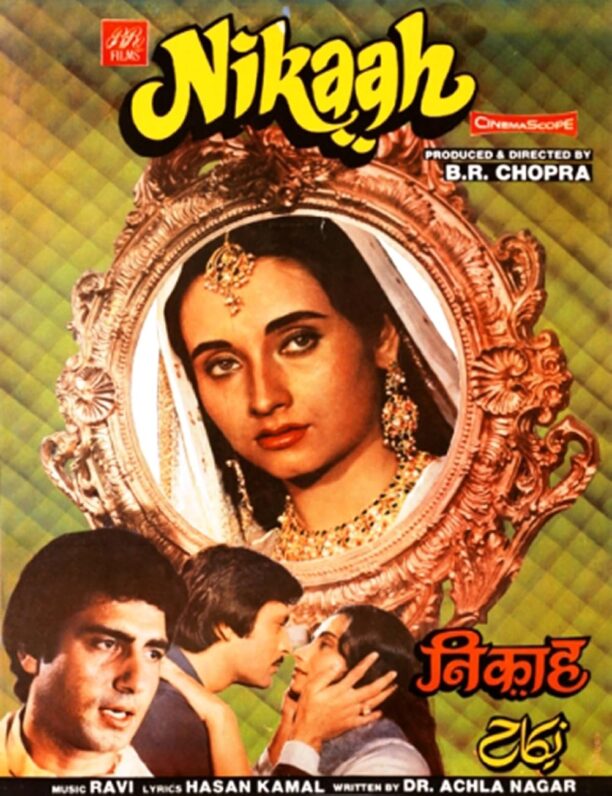 Subhash K Jha revisits B R Chopra’s blockbuster drama Nikaah, a ‘Muskim Social’ which released 43 years ago.
Subhash K Jha revisits B R Chopra’s blockbuster drama Nikaah, a ‘Muskim Social’ which released 43 years ago.
Long before the forthcoming Haq, where Yami Gautam fights for her rights as a divorcee, there was B. R. Chopra’s Nikaah (1982). Originally titled Talaaq Talaaq Talaaq it was produced and directed by B.R.Chopra.
B.R.Chopra’s very impersonal depiction of the Muslim Personal Law featured Pakistani beauty Salma Agha as a Muslim bride left in the lurch by her caddish husband (Deepak Parashar). Even before ‘Dil ke armaan aasoowon mein beh gaye’, the deserted wife rediscovers marriage and companionship with the poet next door (Raj Babbar).
The film’s triangular Muslim tussle won over a sizeable section of the audience. Released within months of Shekhar Kapur’s Masoom and Mahesh Bhatt’s Arth, Nikaah was the third serious study of marital fragmentation in 1982.
It briefly catapulted Salma Agha to fame as India’s first singing star since Suraiya. Ravi’s tunes like ‘Dil Ke Armaan’ won Salma Agha a Filmfare award for best playback singer, though reportedly the music composer had a tough time keeping the singing actress in tune.
The film also introduced Pakistan’s Ghazal singer Ghulam Ali to Hindi moviegoers. Nikaah and Sawan Kumar’s Sanam Befawaa were the last two successful ‘Muslim Social’ films in Hindi. It’s also the only successful Hindi film besides Henna with a Pakistani actress in the lead.
Back then it was considered politically correct to cast actors from across the border in Hindi films. B R Chopra was so taken up with Salma Agha that he gave in to her every demand. Music composer Ravi wanted Asha Bhosle to sing for Ms Agha in Nikaah. But the lady insisted she would do her own singing—thank you!—and she got her way.
Salma Agha couldn’t make much headway in the Indian film industry. Decades after Nikaah, Salma’s daughter Zara Khan was launched by B R Chopra’s brother Yash Chopra in Aurangzeb. She too couldn’t make much headway.









